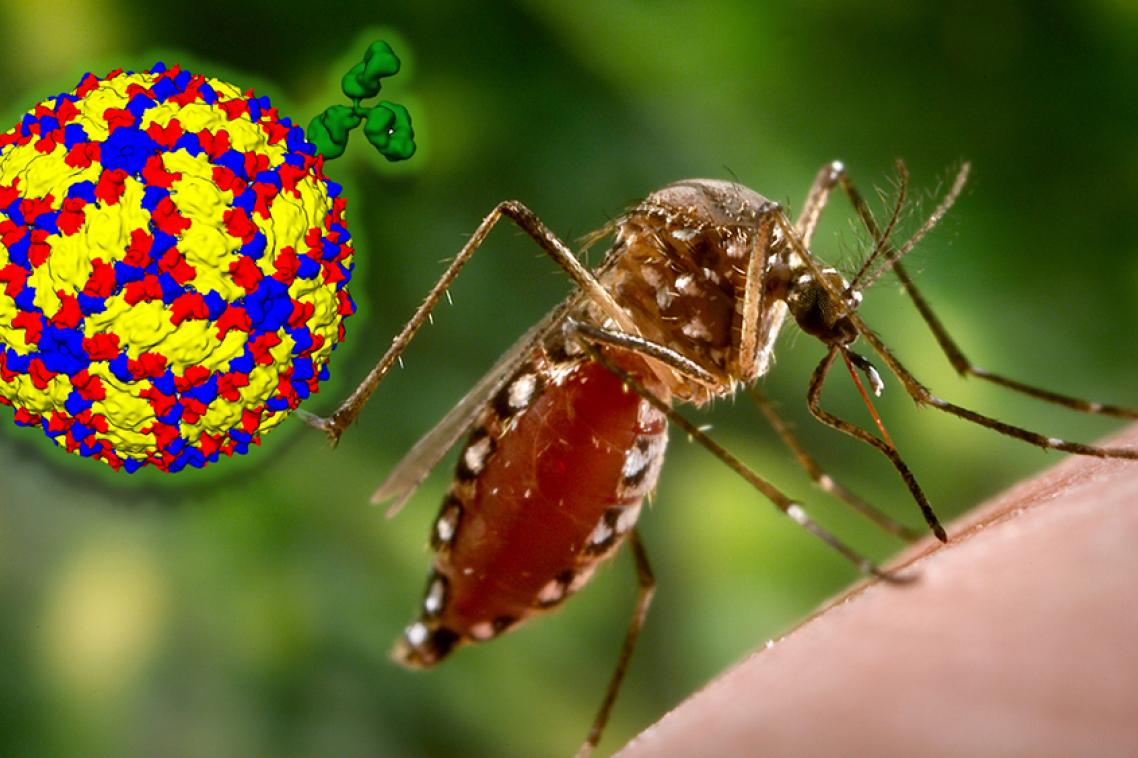Dengue ‘Achilles heel’ insight offers hope for better vaccines

Researchers have new insights into how protective antibodies attack dengue viruses, which could lead to more effective dengue fever vaccines and drug therapies.
The University of Queensland and China’s ZhuJiang Hospital collaboratively led the study which identified an antibody that binds to, and kills, all four types of dengue virus.
The study also revealed the structural basis of the antibody binding to individual dengue viruses.
Dr Daniel Watterson, joint first author of the paper with Dr Jie Li, said that the antibody can block entry to the host cell, an essential step in the virus lifecycle.
“As it recognises all four dengue virus types, it provides the basis of a safe and broad-spectrum anti-dengue therapy as well as informing the next generation of dengue vaccines,” he said.
He said the study shed light on the specific mechanism by which the dengue virus enters cells, and could help explain why some vaccines may not work, while providing a basis for dengue drug design.
“There are four distinct strains of dengue virus, and infection with one does not provide lasting protection against the others,” Dr Watterson said.
“In addition, a secondary infection with a different strain is associated with an increased risk of severe disease, suggesting an immune enhancement of the disease.”
Head of UQ’s School of Chemistry and Molecular Biosciences Professor Paul Young said the work identified an important antibody-binding site on the dengue virus.
“We know from other studies that the dengue virus particle expands its outer shell in response to temperature as a sort of breathing,” he said.
“But when we looked at the different stages of breathing that have already been recognised, we found that this antibody-binding site was still hidden.
“So our work indicates that there must be other, more open states of the virus. The findings have identified a new virus control target, a potential Achilles heel.”
Professor Young said the spread of four distinct dengue virus types had posed significant hurdles to developing effective vaccines, as any potential vaccine candidate must elicit a strong and protective immune response against all four types.
However some antibody responses had been shown to strengthen the disease. This challenge has hindered dengue vaccine development for more than 60 years.
“This antibody was shown to inhibit but not enhance dengue virus infection and so presents exciting opportunities for control,” Professor Young said.
“The emergence of Zika virus has further complicated vaccine design, and emphasizes the need to better understand the molecular mechanisms that underpin protective antibody responses.”
The study is published in Structure.
Media: Professor Paul Young, p.young@uq.edu.au, +61 7 336 54622, @ProfPaulYoung; Professor Matt Cooper m.cooper@uq.edu.au, +61 7 334 62044, @CooperGroupIMB.
Related articles

Decades of surveys show whale migration shift

Should you consent to your doctor using an AI scribe? Here’s what you should know.
Media contact
UQ Communications
communications@uq.edu.au
+61 429 056 139
